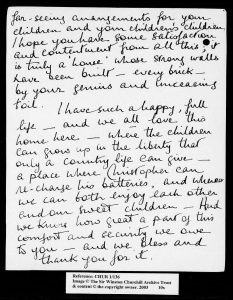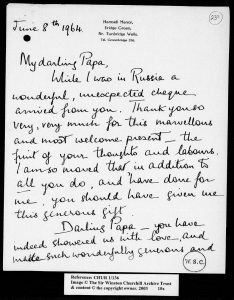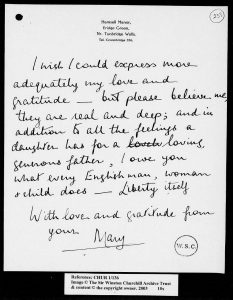
Finest Hour 176
My Brother Randolph
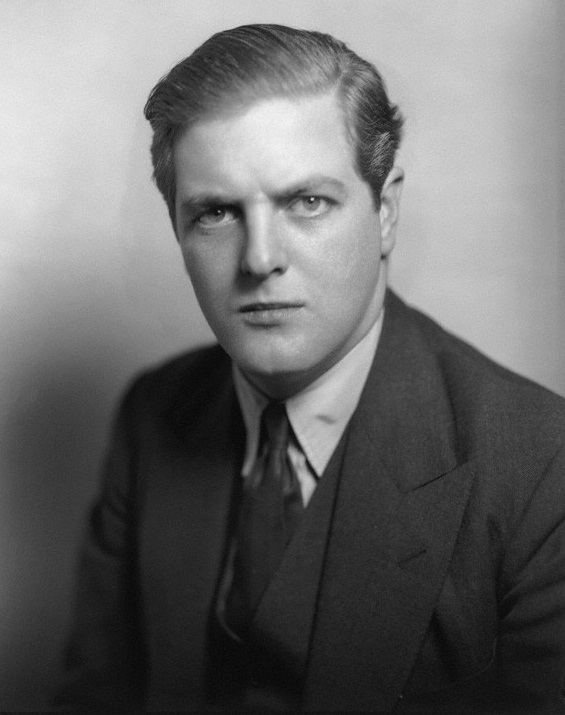
Candidate for Wavertree by-election
September 9, 2017
Finest Hour 176, Spring 2017
Page 24
By Sarah Churchill
In her 1981 memoir Keep on Dancing, Sarah Churchill recalls how her show business aspirations were temporarily placed on hold when she and her sister Diana were called upon by their brother to support the family profession.
In January 1935 the routine of dancing classes was interrupted by a Parliamentary by-election. My brother Randolph decided to stand as an independent Conservative candidate in the Wavertree division of Liverpool. He was not, needless to say, looking for a safe seat, but he took the candidacy with alacrity as a challenge. He commandeered Diana and me to go up to Liverpool to help in the campaign. I murmured something about my dancing, which he imperiously pooh-poohed: politics were far more important. I adored him, so I went meekly—later enthusiastically—to help.
The political hustings were quite familiar since as children we had often accompanied my father on his campaigns. On this occasion my father watched Randolph from afar with a proud paternal eye, but desisted firmly from intruding, although he was obviously dying to. He confined himself to one appearance at an eve-of-poll meeting….[My mother] was away during Randolph’s campaign, so I kept her informed with two long letters:
22 January 1935
Adelphi Hotel, Liverpool
…I came up here last night to be with Randolph for his first meeting. It was very exciting. Sunday he was very depressed as he could get hold of no one, and everything was closed. Monday he wired for me and Diana to come at once to swell the size of his supporters that numbered five!—none of whom were actually voters in the Wavertree division. Diana could not come because of her [divorce] case—but I jumped out of my dancing pants, caught the next train to Liverpool and was met on the platform by a small deputation. They consisted of Randolph hatless, with an enormous muffler around his throat, [cousin] Peregrine with his car, five or six handsome young men from goodness knows where, Miss Buck—Randolph’s secretary—and a flashlight photographer. I stepped unsuspectingly from the carriage. A few unbecoming photographs of Sarah struggling with odd bits of luggage gathered at a moment’s notice; then I arrived here to find the oddest looking collection of people, but all I discovered to be charming, sincere and hard-working. In an hour the first meeting was to be held. This was going to be very important for us, and we all felt very anxious—Randolph, of course, not at all apparently—and discussed having chairs put on the platform to accommodate the overflow. I wondered doubtfully if that would be necessary—but did not say so. At 7:30 Randolph told me to get on to the Town Hall and find out how it was filling up.

2025 International Churchill Conference
An incoherent child answered, which wasn’t encouraging. Finally I got hold of the caretaker, whose muffled voice seemed to come from under a pile of dust sheets. “How many have arrived? I gaily asked. “No one,” he said and slammed down the receiver. I told Randolph—he went a trifle red and said: “Sh! we never put any posters up outside the hall!” Still it was no use worrying. 8 o’clock—we must go. Randolph, me, Mr. and Mrs. Cannel (Daily Mail local), the Daily Mirror—a man called Watts, a marvellous two or three other people crowded into a taxi that groaned under our weight.
We shall anyway fill the hall a bit with our weight I thought. But it was amazing. The hall was packed, and Randolph, who had thought he would be alone on the platform, found he hardly had room to stand on it himself. His stewards meanwhile had already organised an overflow meeting at the Women’s Institute further down the road—which we went to later and which was even fuller and more enthusiastic. Randolph then said—if any of you feel like supporting me, please don’t just go home, come now at once to my committee rooms and enroll. About 100 came, which was surprising considering that the committee rooms were 1½ miles away.
Today more rooms are being got, and the organization is progressing well.
I honestly think we stand a sporting chance of winning. The first round is ours—but there are so many rounds—and can we keep it up. Randolph’s voice is a great anxiety—he gets so excited and shouts much more than is necessary, and last night he nearly lost it. It is his most valuable asset—he does speak brilliantly at times—all the women say he is a new F. E. Smith and sing “Randolph, hope and glory!”
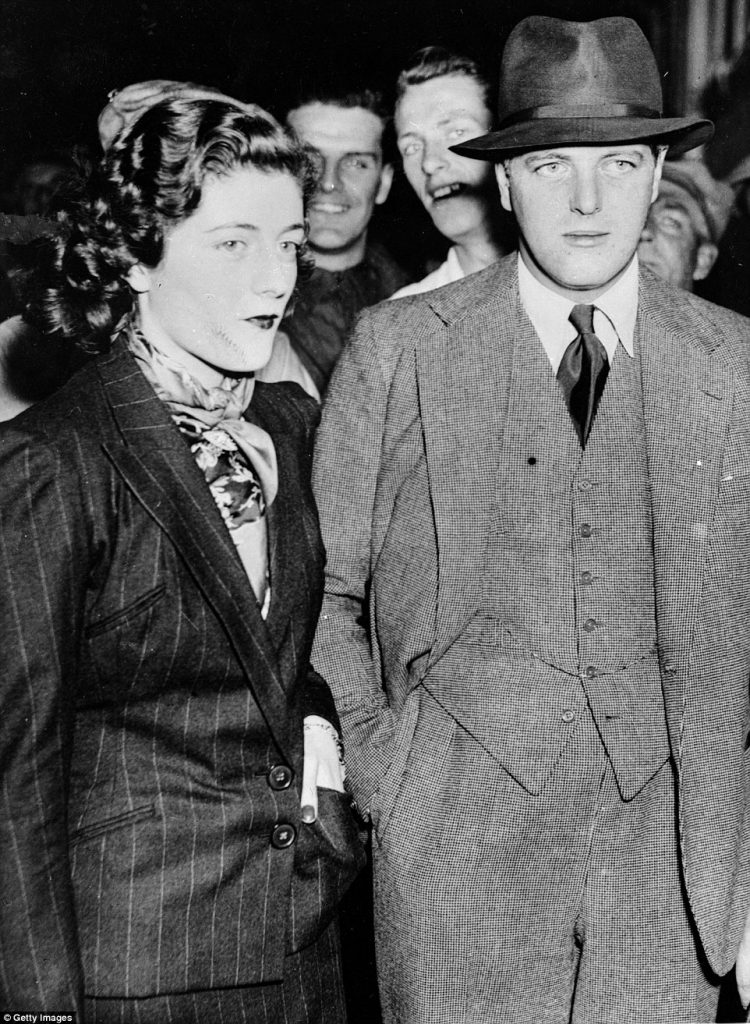
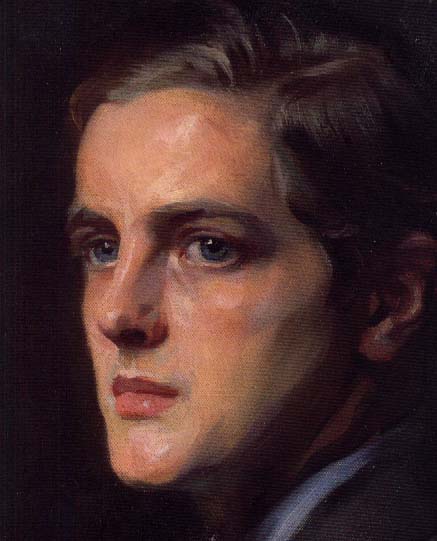
17 February 1935
Chartwell
…I told you about the first week at Wavertree more or less I believe….All day we addressed polling cards, and then at nights went round with Randolph to the most enthusiastic meetings generally. On the whole he spoke very well, always he humoured his audiences and got them laughing and willing to listen, and what impressed them most was the way in which he answered questions afterwards. His answers, more than his speeches, showed that he really had an amazing depth of knowledge on a variety of subjects. There can be no doubt that he has a great power of rallying people under his banner. Young men and girls literally hero-worshipped the “Fat Boy of Wavertree” as the Daily Express called him!
Also he showed an immense capacity for sustained hard work and generally infusing everyone with his energy. Randolph of course was the whole time confident of victory—the thought of defeat never seemed to cross his mind even in private. It was a horrid moment at the “count” when we arrived and Orr-Ewing and his political agent told him he didn’t stand a chance. He went very white indeed, and I wondered anxiously how he would take it. I must say he was marvellous—after that moment you wouldn’t have known that he had lost! And certainly no one guessed how much he minded. It sounds pompous and horrid to say so, but losing Wavertree taught Randolph an immense amount. I think it would have been disastrous for his career had he won, because he would have been (naturally) so impossibly conceited. As it is, he has come out of it very well—shown definite ability and has gained general respect all round—if a certain amount of disapproval for splitting the vote. The 10,000 votes he got were due almost entirely to his speaking, as our organisation was really nil. The second week was slightly different. Randolph asked me to get hold of some of my “boyfriends” and get them to come up to Liverpool and canvass. I had a sniffy telegram of refusal from one of my friends, but Harry Llewellyn burst upon the scene with his younger brother and proceeded to convulse me and Cousin Mop (who came to lend an air of respectability to the campaign) and indeed the entire electorate by their unconventional way of canvassing. They were up there ten days and Harry was a scrutineer at the “count.” I think he thoroughly enjoyed himself although thoroughly disapproving of Churchill politics! He had a car sent up on Polling Day, and also his dog Lancer who did the most bewitching tricks.
I can’t tell you how sweet all the people were and how much they loved Randolph. It really is a most romantic story. Randolph and his four friends from the tour he made in the summer in Lancashire decided by themselves to take this venture. His “gang” are all Lancashire men ruined by the penal tariff, one is actually a cotton-spinner who left his wheel to come and speak in broad “Albert and the Lion” accents for Randolph.
The day after Polling Day was sad, everyone returned to their jobs, Harry and David went back to Wales, Randolph back to journalism, me back to dancing. I am working for an exam—Wavertree was not a very helpful interlude for me exactly. Clerical work is rather trying for a would-be acrobatic dancer….
The King’s English
This was Randolph’s first foray into the political arena where he had set his goal but which was forever to deny him any real success. Despite their disagreements, Randolph was to be everlastingly unhappy that he could not be as the younger Pitt to the elder, standing by his father in the House of Commons and fighting the battles with him. He did become a Member of Parliament very briefly during the wartime coalition government; but he had little luck with politics. I am sure, however, that as a renowned journalist toward the end of his life he gained great satisfaction collaborating with his own son, my nephew Winston, on their book about the Six-Day War in Israel. Winston was sent to cover the battlefield as a journalist while Randolph sat at his home in East Bergholt—already quite advanced in his last illness—surrounded by telexes, recordings of broadcasts, and copies of dispatches from his son in Israel.
Before Wavertree, Randolph, at the age of twenty-one, had already made a remarkably successful lecture tour of the United States of America. Goodness knows what he was speaking about, but he certainly wowed his American audiences. Frankly, they must have been impressed by his name, of course, but also by his incredible good looks and his oratory. My father had had to teach himself to speak—the well-known lisp, which too many people have imitated was conquered, but he had to work at making himself an orator. By the time that Randolph was on the scene he had been brought up in the sound of that resonant, positive and riveting voice, and I suppose this is where family environment has a definite effect. If you are the son of a cobbler, you learn to make shoes just by watching; if you belong to a totally musical family, you will know about music—even if it is not your particular bent. I can only suppose that among my father’s children it was a form of unconscious acceptance that made us speak “the English rather good!”
No Picture, No Story
There were two events during the Wavertree campaign that I carefully avoided mentioning in my letters to my mother. The first was that Randolph, descending the steps of the Adelphi Hotel, Liverpool, with his small entourage, was greeted by a man running up the steps with his hand extended. Randolph, thinking it must be an admirer…naturally extended his own hand to the supposed voter. But as the man slipped away into the crowd, Randolph discovered he had been left holding a writ. Flashbulbs exploded for the opposition’s publicity photographs, and Randolph became much more wary of supposed admirers. The writ, I must add, was for something quite innocuous, but it made a good picture and that, after all, is what newsmen are for—though in equally embarrassing situations myself, I have wondered just what they are for. But one has to remember the old reporter’s saying: “If there’s no picture, there’s no story.”
The second event was the time we were touring the dockland area when a brick was thrown into the car. No personal damage was done, but we were very near the water’s edge and I remember thinking that if things got really nasty it would be a dirty and murky end to be pushed over the side. Apart from the verbal abuse—which, being children of a soldier and politician, did not trouble us—there was no further violence. But it was quite impossible for Randolph to do what he had wanted to do: stand up on the car and make a speech.
In some of the smaller halls where we had meetings, the noise was so great that Randolph simply could not be heard through the screams of violent abuse. On one occasion he even took a tremendous leap into the audience, who were crowding the platform. They instinctively backed off and Randolph left the hall as we followed meekly—unmolested by the astonished crowd. Randolph appreciated on such occasions that it would be impossible to put any policies before the crowd. But he did make it clear at every meeting, no matter how rowdy, that if he had no way of making them desist from their follies, he would at least assert the Englishman’s right to free speech. He succeeded to a considerable degree; respect for him went up enormously, and at many meetings the audience became very attentive.
A Popular Winner
Throughout all the years I knew him, despite the usual occasional spats between brother and sister, he was a deeply emotional, affectionate and endearing person. Randolph once appeared on the popular American television program, The $64,000 Question— the quiz game in which you could choose your subject, from astronomy to Xerxes, be locked into a soundproof glass box and have questions hurled at you. Randolph chose general knowledge and, like the assiduous schoolboy he had never been, he crammed his subject for six months. To the amazement of the world and to his own horror, when he went on the program, he froze on the first question: what is the origin of the word “boycott”? I hurried round to his hotel the next day and commiserated: “Well, there have been some doubts about the authenticity of the program, but you’ve certainly dispelled them. And you’re a popular loser.”
A grown man, mature in thought, he turned to me with a pathos I still remember: “I don’t want to be a popular loser. I want to be a popular winner.”
Sarah Churchill (1914–1982) was the third child of Winston and Clementine Churchill. This article, © Sarah Churchill (Lady Audley), is reproduced by kind permission of the Master and Fellows of Churchill College, Cambridge.
Subscribe
WANT MORE?
Get the Churchill Bulletin delivered to your inbox once a month.

